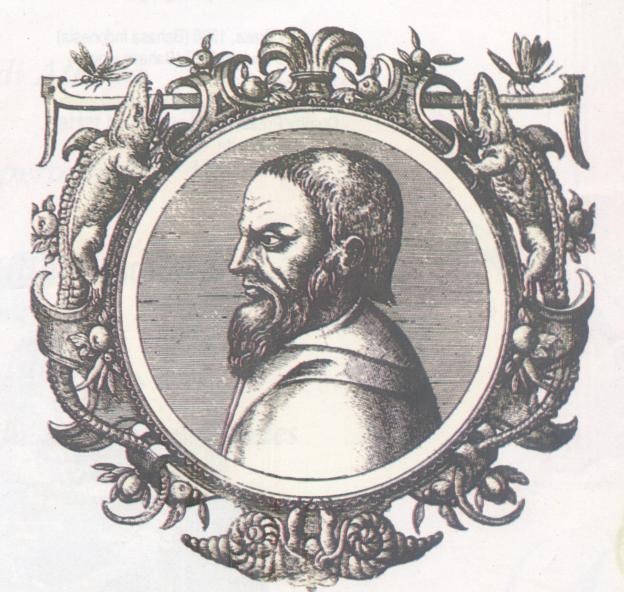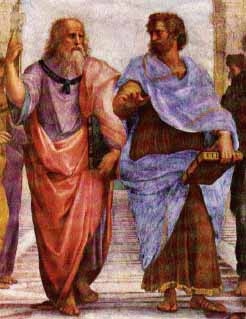 |
| Aristotle |
Aristotle was born in Stagira, Thrace, 384 BC. His father was King Amyntas' doctor, who came from Macedonia, north to Yunani. He grew up in King Amyntas' Palace. His friend was Philip, the king's son. Because of his father, Aristotle had an interest in natural science, biology, and anatomy. For a Greek family like Aristotle's, their life was pleasant. They had money and servants. Their sons studied mathematics, politics, philosophy, logic, and ethics. When they were young men, they visited the temple and came to the theater to see concerts, theater, and dance. His parents died when he was a child, so he decided by himself the way which was the best for him. When he was seventeen, he went to Athens, Greek's capital city. In Athens, he joined Plato's Academy.
Plato had founded the Academy twenty years before Aristotle came. The place was in the countryside, next to the forest. This was a place where people could think, expand their understanding, and learn science. A gymnasium became a place for discussion. The discussion began when a student asked something, and the other tried to answer it until they got the answer. The Academy also educated the students to learn politics, leadership, and to give advice to men in authority. The Academy was later closed in 529 AD by Byzantium's emperor, Justinian I. In the Academy Aristotle wrote some dialogues, but now only the excerpts are left.
 |
| Plato (left) and Aristotle (right) |
In 356 BC his best friend, Philip II from Macedonia, asked him to teach his son, Alexander, who would later be known as The Great Alexander. In 347 BC, when Aristotle’s knowledge had reached a higher level, he began to question Plato's opinions. Later, Plato died and was replaced by his nephew, Speusippus, whose opinions were very different. Speusippus taught that everything in the world can be explained by numbers. So, Aristotle left the Academy and began his own journey.
Aristotle’s belief was that this world is divided into five elements, which are land, air, fire, water, and ether. He left Athens for twelve years. He began his journey from Assos, Hermia's Palace in Atarneus. He learned politics, biology and became an adviser. He married Hermia's niece. He built a few academies in Assos and Mitylene. He left after ten years, but while he was there he made many observations and natural experiments. He was a thinker, not an executioner. His method was very different from what a thinker usually did in his era. He made experiments which required someone to be directly involved in the activities.
Among many of his famous writings are The Parts of Animals, The Natural History of Animals, and The Reproduction of Animals. His writings are still timely today and still in use in this modern world. He taught that the dolphin is a mammal which breathes with lungs, not like other fish. He showed that the hyena was not a hermaphrodite. He explained how a squid digested its food. He also said that nature made body organs which harmonize with the jobs that the animals must do. He also made mistakes. This is understandable because he did not have a microscope.
In 334 BC Aristotle came back to Athens. He started an academy, later called the Lyceum, dedicated to Apollo. This academy was also called the Peripatetic School because philosophers studied and discussed by walking up and down in the yard. He gave instructions to make arguments and deductions. He explained how to think which he called syllogism. This method used sequence and relation of the information. It didn't show new facts, but new relations of the facts. Aristotle introduced a new method of thinking which made students think critically.
In 323 BC the Great Alexander died. Aristotle lost powerful friends and backup. The men who didn't like Macedonia began to show their feelings. Aristotle became one of their targets. To avoid problems, Aristotle left Athens and went to Chalcis, in Euboea. In 322 BC Aristotle died because of serious digestive problems.
Page created on 6/5/2006 12:00:00 AM
Last edited 1/6/2017 7:27:37 PM
